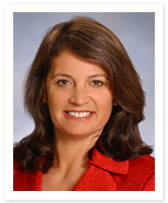There were some interesting exchanges when state Rep. Erik Fresen, R-Miami, stopped by the Broward County School Board this week (see the video here). One dealt with the role of charter schools in Florida’s education system, and why parents might choose them even when their children already go to an A-rated school.
School board member Laurie Rich Levinson questioned the purpose of charter schools that open in the vicinity of district schools where students are already doing well.

“They’re going to open in areas where we have our highest-performing schools, where there’s not a need for a charter school,” she said. If charter schools open right down the street from a high-performing school, “what are we achieving?”
Fresen responded with a case study from Broward’s neighbor the south, Miami-Dade. Charters have opened in Coral Gables, where most existing public schools were already high-performing. Now, he said, while A-rated charter schools may draw students from A-rated district schools, all the schools have been forced to step up their game. District schools now offer language and international-baccalaureate programs they might not have otherwise.
In other words, competition from private and charter schools, which is more intense in Miami-Dade than in most Florida districts, may be adding to the school choice “tsunami” in South Florida.
The reasons parents might choose a charter school are complex, Fresen said.
“A school is not just a letter grade,” he said. “That school could be an A, but for whatever reason, [parents] prefer the other school’s environment, the kid feels better. Maybe the kid was getting bullied at that school, or made fun of. Who knows?”
“The human condition is not so black and white that you can codify a master plan for where schools should and should not go,” he said.
At the same time, there is some evidence charter schools tend to get better results when they serve disadvantaged students.
A recent study by the Center for Research on Education Outcomes at Stanford University found charters in Miami were about as likely as other public schools to serve students living in poverty, and that “disadvantaged students tend to receive the strongest positive benefits” from charter schools. Miami charters were more likely than those in other Florida cities in the state to serve impoverished students, and also tended to have stronger positive effects.
In other words, it might not make sense to prohibit charters from setting up shop near high-performing schools. For one thing, location alone doesn’t always dictate which students enroll. But it probably does make sense to encourage charters to target high-needs areas.
Fresen told the Broward officials that should be done through incentives (a new state grant program is one example), rather than explicit mandates, or what he referred to as systems of “geographic exclusion” that dictate where new schools are allowed to open.


